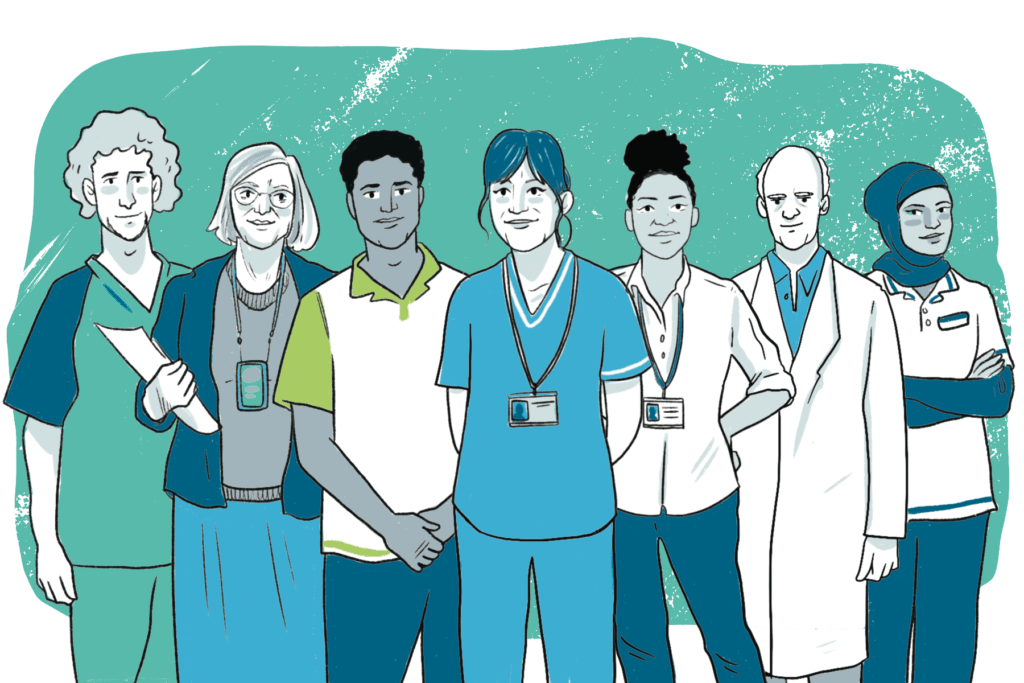Benefits and beyond: exploring the diverse roles of social workers
Traditionally within haemophilia, the role of the social worker is often associated with assisting patients and families with benefit awards such as DLA (disability living allowance), and more recently PIP (personal independence payments). Whilst this is part of their role, discussions throughout the day revealed the true breadth of activities and challenges social workers tackle day to day, whether that be “waddling around the hospital looking for a private room” to counsel a patient or completing 6+ hour round trips to visit patients and families at their homes, the diversity within their role is truly astonishing.
Social workers are an invaluable resource for many patients and family members, and whilst they may not be needed by everyone, there are likely to be a significant number of people in the community who could benefit from their service, but are simply unaware of the what they offer or don’t have access. The group emphasised that the people they see and speak with are at the heart of what they do, and building relationships with them, often in a non-clinical setting, gives them a unique perspective that adds to that of the nurse, consultant or psychologist. This showed the importance of making sure social workers are involved members of the MDT, and that their specialist skills are fully understood and appreciated.
“We visit these people in their home. We form a relationship (that is) separate from their diagnosis”
Social workers can offer assistance with ‘anything and everything non-medical’ – benefits applications, housing, liaison with external agencies, social isolation, patient advocacy, treatment adherence and needle phobia, safeguarding, and the list goes on. As discussions progressed throughout the day, it became clear that whilst the group had varying experiences in their parts of the country, they faced some of the same barriers and challenges. They also recognised that establishing themselves as specialists in the bleeding disorder community and demonstrating the value of their role will be crucial going forward, to ensure they can keep providing their services to those patients and families who need it.
For the majority of the group, this was the first time they had met with other haemophilia social workers and found exchanging views with each other throughout the day extremely beneficial. As a result, these haemophilia social workers have a shared vision of what their services mean for the community, and the importance of ensuring these are available to patients. There is much to be done to achieve their goals, and with a second meeting already planned and actions set out, they are moving forward. Haemnet are excited to support this group and the development of social care for the bleeding disorder community.
We would like to extend our thanks and appreciation to the haemophilia social workers group who made the trip to Birmingham for this meeting and gave us a unique insight into the scale of their roles.


